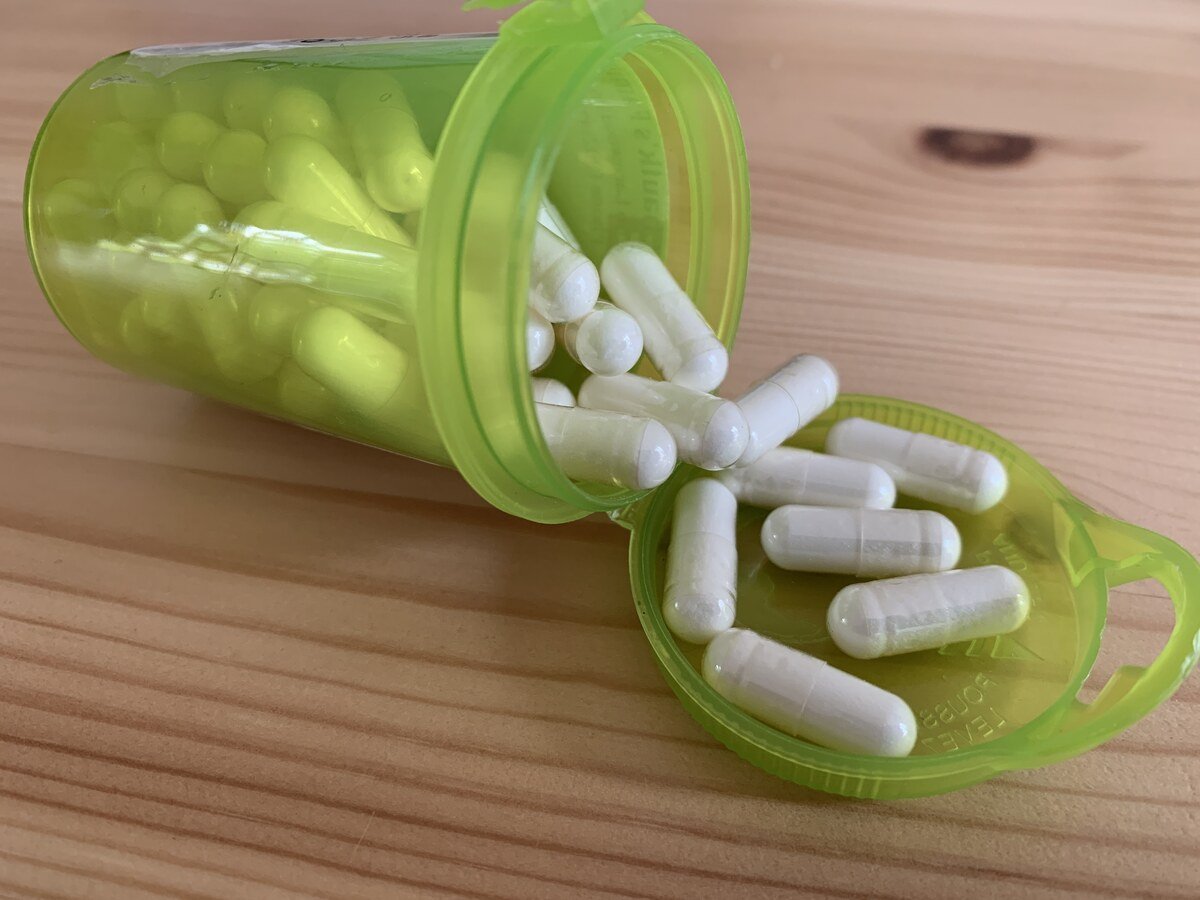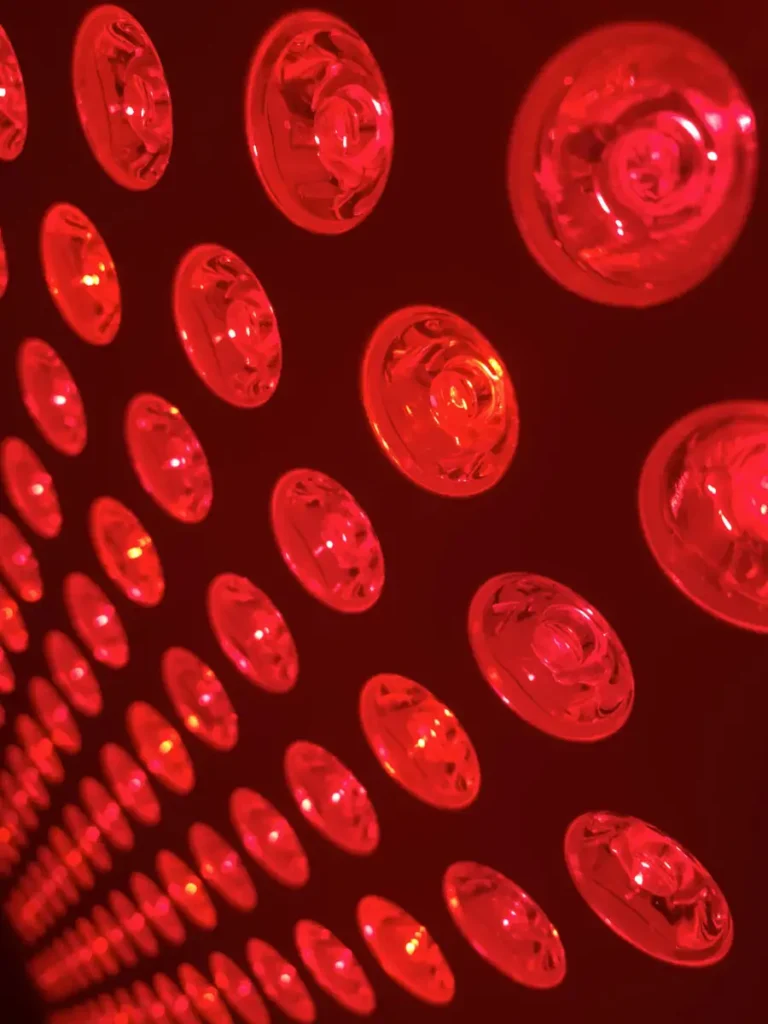Starting Levothyroxine: My first 30 days on Thyroid Medication for Hashimoto’s Thyroiditis
Well this was completely unexpected! Starting levothyroxine for Hashimoto’s Thyroiditis wasn’t supposed to turn out like this!
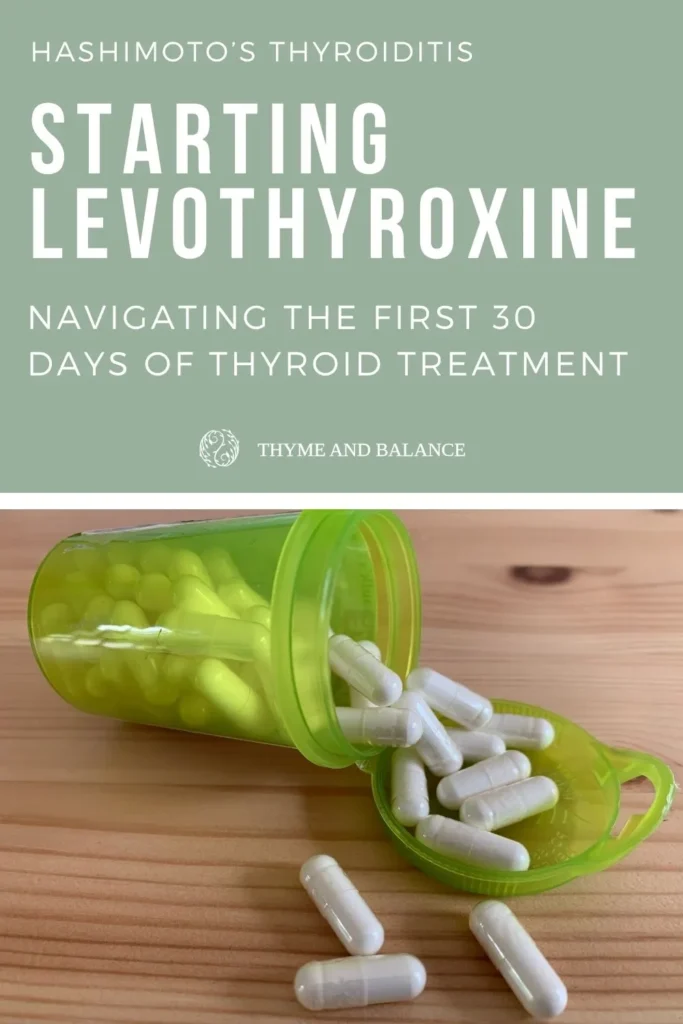
NOTE: This is my story, together with my interpretation and understanding. Nothing in this blog is medical advice. What works for me, might not work for you. But perhaps, by sharing experiences we can learn from each other. Read my full disclaimer.
Why I started Thyroid Medication
When I first got diagnosed with Hashimoto’s Thyroiditis in December 2023, I hoped I could manage it naturally. My main focus has been the Autoimmune Protocol (AIP) core elimination diet. It has done amazing things for me and I feel so much better!
But after months of clean eating, lifestyle changes, and supplements I am still not 100% and still feel blah most of the time.
So I turned to a certified AIP coach, the only one in our Province (Nova Scotia)! I had an amazing chat with her and she was super helpful.
Long story short, she recommended me to get on thyroid medication, and do a combination of Autoimmune Protocol (diet and lifestyle changes) and thyroid medication to allow my body to heal and function.
She recommended another naturopath, and off I went!
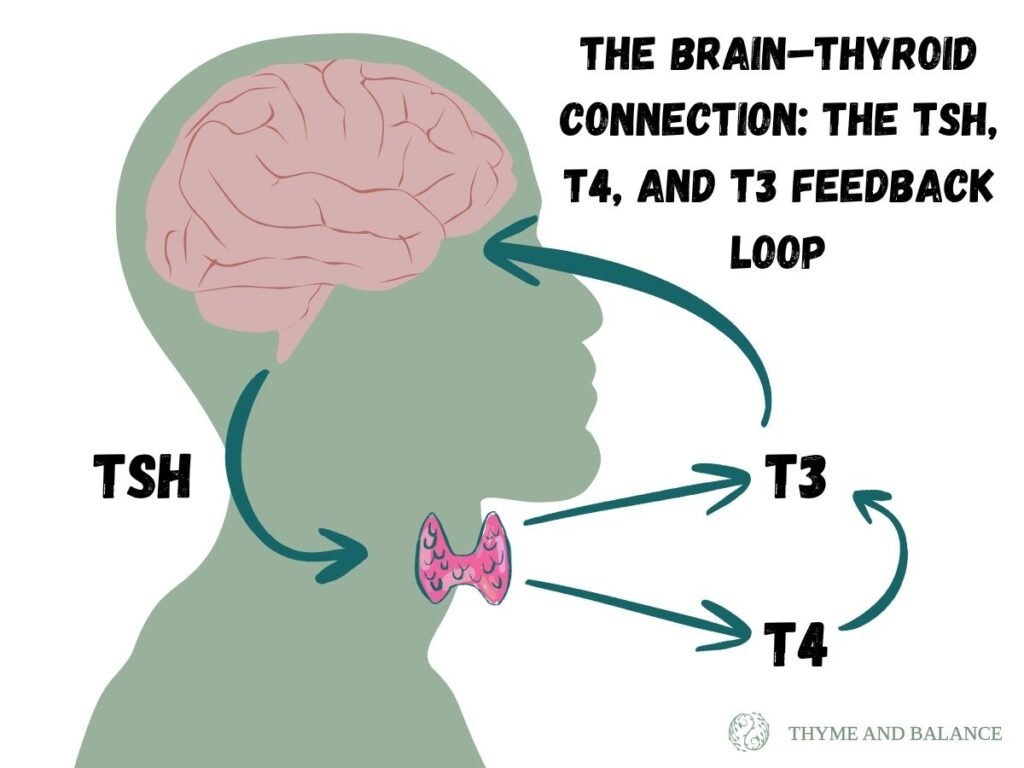
What is Levothyroxine?
Levothyroxine is a synthetic form of the thyroid hormone T4. Usually your thyroid gland produces it. From what I understand, it is the T4 levels that via a feedback loop to the brain, regulate TSH levels. So a low T4 level results in a high TSH. By adding synthetic T4 to your body, you need to produce less TSH.
Levothyroxine is the most commonly prescribed medication for hypothyroidism, where your thyroid doesn’t produce enough hormones to support your body’s metabolism, energy levels, and overall function.
When your thyroid hormone levels are low, you might feel tired, cold, foggy, or even depressed. Classic hypothyroid symptoms. Levothyroxine helps restore those hormone levels, supporting everything from brain and heart function to digestion and mood.
It’s usually taken once a day, either in the morning on an empty stomach or at night several hours after eating. It is important to be consistent in taking this medication, both in timing and how you take it, because even small changes can affect how well it works.
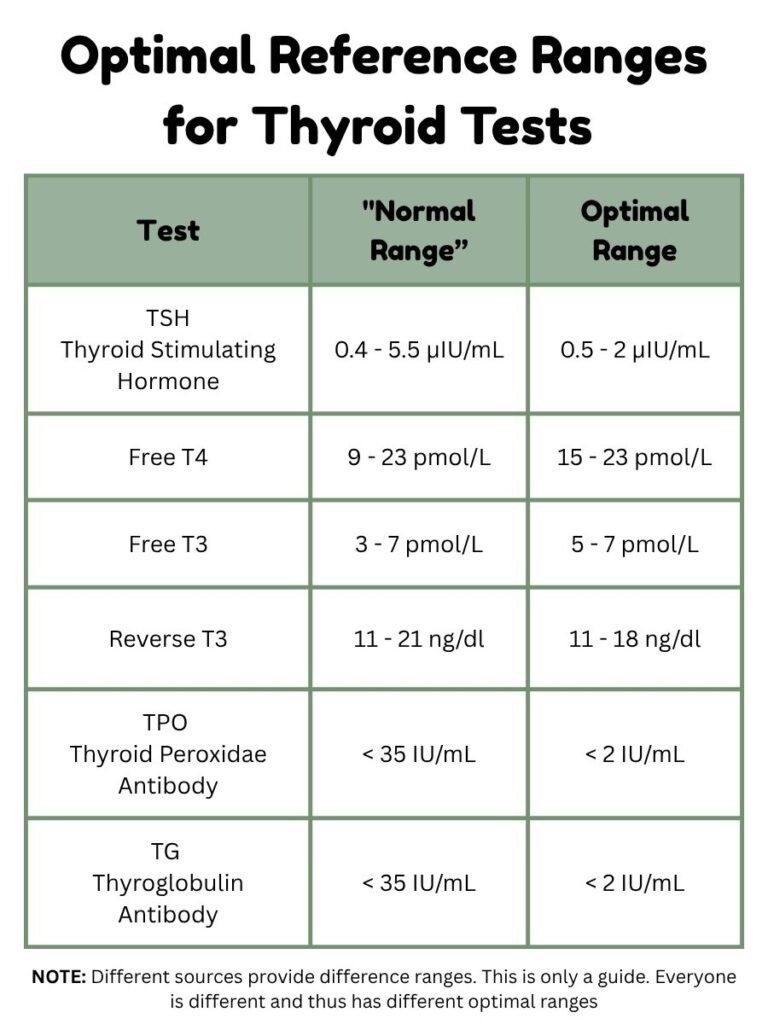
Getting the Levothyroxine Prescription
The naturopath confirmed the same: thyroid meds and AIP in combination, until I can reintroduce foods! Finally I had found someone who understood, who had been through a similar struggle! I am building my little support team: Naturopath and certified AIP coach!
The naturopath put me in touch with a doctor that could prescribe levothyroxine. My family doctor would not look at my thyroid any further, as my levels are still “normal” (at the time my TSH was at 3.16). Even though I was still experiencing classic hypothyroid symptoms like fatigue, joint pain and brain fog.
From what I’ve been told by multiple practitioners here in Nova Scotia, doctors generally won’t treat until your TSH exceeds 12!!! OVER 12???? I was shocked when I found out! And most people feel at their best when TSH is between 0.5 and 2.0.
Anyway, the appointment with the doctor went well and she prescribed me with 25mcg of levothyroxine for three months and we booked a follow up. For most people it takes 6 to 8 weeks to notice any difference and before anything can be picked up in bloodwork, so a 3 month follow up makes sense!
It is my understanding that some people react differently to various brands or formulations of levothyroxine due to fillers, dyes, or binders. Even compounded versions can vary slightly.
To eliminate some possible issues, we ordered the medication through a compound pharmacy. This is a pharmacy where they mix it in house, with no fillers or additives. This is to rule out any other sensitivities, as I am still working my way through AIP reintroductions.
I was feeling pretty good at that stage! No joint pain, fatigue was mild and overall I was in a good headspace! And slowly but surely reintroducing some foods!
90 pills in hand, I was nervous to start taking them, but excited for the prospect of maybe feeling a touch better. With such a low dose, I did not expect miracles, but was hopeful.
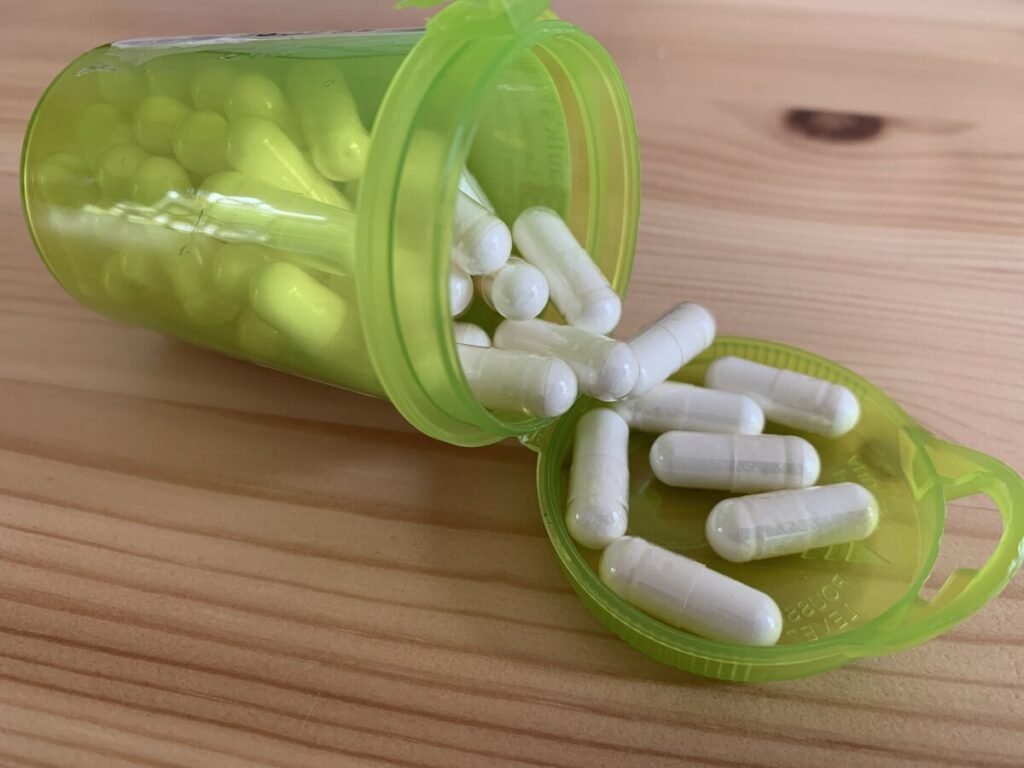
The First 30 Days: What Happened Week-by-Week
Boy oh boy, I did not expect to get the rug pulled out from under me like this!
Week 1
Levothyroxine side effects hit hard from Day 1. It was a struggle and a half to keep my eyes open! Fatigue to a level I had not experienced in quite some time! And in such a bad mood…
This didn’t really go away for the entire week. The fatigue lifted a bit, the mood and elevated levels of irritation stuck around.
I made sure to take my pill first thing in the morning and then not eat or drink anything (but water) for at least an hour.
I hoped that this was just a levothyroxine adjustment period.
Week 2
The second week was pretty similar. The fatigue lifted some more. But I did have a few days of extreme fatigue in between that I cannot attribute to anything else but the medication. But the bad mood and irritation levels are really starting to play a toll on my mental health.
I didn’t expect digestive issues from thyroid medication, but here we are. The medication messed with my digestive system and bowel movement. Again, nothing in my diet changed that could have caused these changes, making me believe it was the levothyroxine. And again, this is the opposite of what I had expected!
Week 3
After 3 weeks I booked a follow up appointment with my naturopath (the doctor said to deal with her to navigate symptoms and side effects, etc).
She suggested I take the medication at night, instead of first thing in the morning to see what that does. And she ordered some bloodwork to see what was going on. She ordered TSH, Free T3, Free T4, Reverse T3 as well as some other hormones and cortisol to see if anything else is going on. It’s like a treasure hunt, except we aren’t trying to find a treasure, but instead just trying to find the problem, trying to understand what is going on
This change knocked me over yet again. The following day I was broken. Fatigue to the point where I could not get off the couch and slept on and off most of the day. And the mental state was down in the dumps. Down in the dumps for the entire week, with some sick time off work to recoup. This was a long week!
I also had a long chat with the pharmacist to double check there isn’t something in the medication that I might be reacting to. Just trying to rule out possible problems.
I am now taking the pill just before I go to bed, and make sure I did not eat or drink anything (except water) for at least 2 hours beforehand. I try to push it for longer where I can to make sure there is nothing that can interfere with the absorption of the medication.
Week 4
Now, I wake up every morning exhausted, with a headache, dry mouth and tinnitus (I have had it for a while, it’s just a new level in the mornings these days). Not my ideal way of starting the day! And definitely not great for a positive headspace!
And throughout the past 30 days I feel like I have a slight head cold, with a mild fever. I am not sick and don’t have a temperature, but I just don’t feel right! But, bloodwork has been sent in, and now we wait for results and more guidance on what to do next! Maybe this is still part of the levothyroxine adjustment period? Too soon to say.
I did also gain 2 pounds, but I think that is more attributed to me eating more…I tend to eat a lot when I don’t feel myself. And of course not feeling that way, I moved way less than usual.

Navigating Levothyroxine Side Effects
Starting levothyroxine for Hashimoto’s is the complete oppostie of what I had expected. This not so fun experience forced me to slow down and take some me time! It forced me to take a day of sick leave and manage my work load for a few days.
This forced me to slow down. I neglected the blog and focused on resting. It helped me to revisited my goals and scale back on my expectations.
And I took this as an opportunity to spend more time outdoors and to connect with nature.
I know it can take up to 6 weeks to really see effects, so practicing patience and keeping the eye on the goal has kept me going! And of course having a very supportive and understanding partner has really helped.
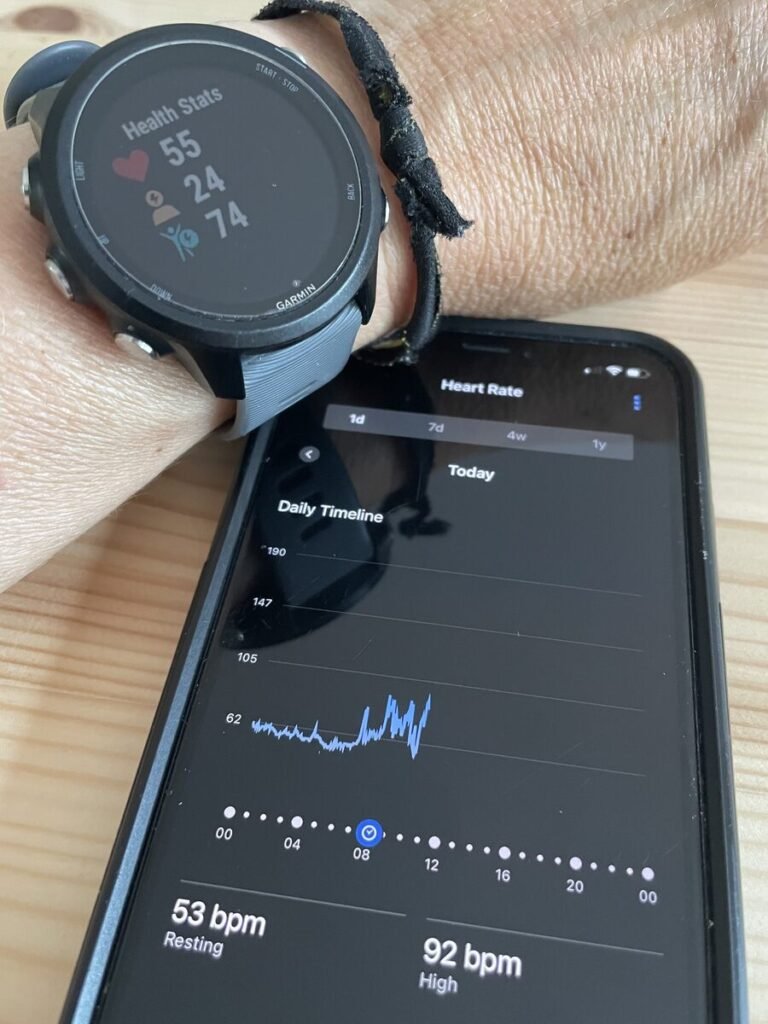
Reflections and Lessons Learned
Tracking Resting Heart Rate
One of the most interesting things I learned, which I had not known before, was resting heart rate can be a useful indicator of thyroid function, especially when starting or adjusting thyroid hormone replacement therapy.
For someone my age, the resting heart rate is supposed to be in the 70s BPM (beats per minute). This number obviously differs with fitness levels and a few other variables. This site has a table for age and fitness levels if you want to have a look to see where you fit in.
But currently I am super unfit, and my resting heart is always in the mid 50s (anywhere from 52 to 58 BPM)! I use my Garmin watch and can easily monitor what my average resting heart rate is for each day, so I started tracking that to see if there are any changes with the meds.
I found this interesting and wanted to share that! It is easy to monitor (especially if you have a watch that measures heart rate) and a good indicator if the meds are working for you or not!
Navigating Side Effects
I wasn’t prepared for these negative side effects. I hadn’t seen anything of the like on the internet or in any of the online groups I am in. Everyone just speaks of either improvement, or hyperthyroid symptoms in cases where the dose is too high. So it has been an interesting journey for sure. One I hope will come to an end soon!
Tracking Symptoms
Another very important lesson learnt is to track your symptoms (physical and mental). Whenever you change something, write it down. It is the only way to really understand how something affects you. Reintroducing foods? Write it down? Changing medication or routines? Write it down. It is tedious, I know, but it is the only way.
Slow and steady wins the race!
Lessons I’m Learning
I have also learnt that different people respond differently to brands of levothyroxine. And I’ve learnt that even small differences in compound formulation can affect how people feel. I’m keeping this in mind in case I need to explore other options.
Looking Ahead
I don’t like it! And I don’t feel like myself while taking this medication. I and not a fan of what the medication is doing to my mood.
It interrupts my routine. If I take it in the mornings I cannot have my morning chai latte. So subconsciously I hope to wake up in the early hours of the morning to take my pill, but this interrupts my sleep.
And if I take it at night I cannot have my turmeric latte which helps me sleep.
And there is absolutely no way that I will set the alarm for sometime in the middle of the night. Sleep is precious to me, and I will do my best not to interrupt it!
So for now, although it feels like levothyroxine is not working for me, I will continue to keep a journal of my symptoms and heart rate. I will continue with AIP and reintroduce foods when I feel up to it.
My Closing Thoughts
I’m going to keep pushing through. I know it can take time for the body to adjust to thyroid medication, so I’m giving it a bit more time before making any decisions.
I’m also waiting on my bloodwork results and will see what my naturopath recommends next.
If levothyroxine isn’t working, I may explore natural desiccated thyroid or T3/T4 combination therapy. I have not researched or spoken to my naturopath about combination therapy that includes T3 or desiccated thyroid just yet. I have read that some people with Hashimoto’s respond better to these approaches. But let us see what the bloodwork says first.
What gives me hope is that I’ve found two amazing people who are truly on my side: my naturopath and AIP coach. Knowing I have people I can call that understand what I’m going through has made all the difference.
If you’re on a similar journey, I encourage you to build your own team. It’s not always easy, and it can be expensive, but having the right support can be life-changing. If you’re not sure where to start, consider reaching out to an AIP coach, ideally someone familiar with your specific autoimmune condition(s).
Stay connected! I hope to share an update sometime soon!
Let’s Connect
No two Hashimoto’s journeys are alike! But if you’re walking this road too, know you’re not alone. I’m still learning, still adjusting, and still hopeful. Let’s connect! I’d love to hear your story! What has worked for you, what has not, and what you’ve learned along the way.
Feel free to share in the comments or reach out directly. Let’s support each other through this!

